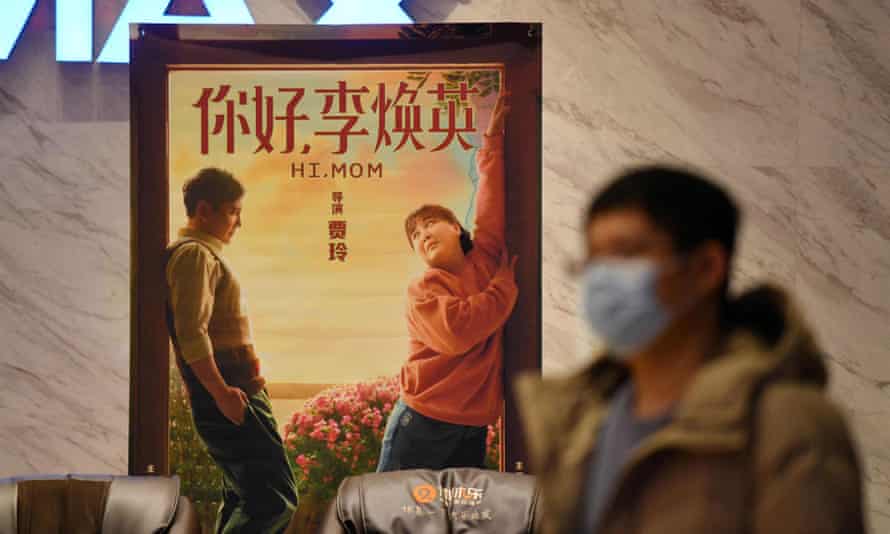Source: The Guardian (2/25/21)
Hi Mom: comedy about death and parenthood becomes one of China’s biggest film hits
Written by and starring comedian Jia Ling, the film has started a conversation about mother’s love and women’s identity
By Helen Davidson in Taipei

Audiences are cramming into Chinese cinemas to watch the sentimental comedy Hi, Mom Photograph: Greg Baker/AFP/Getty Images
A Chinese comedian’s directoral debut about a woman who travels back in time to see her dead mother has become the fourth highest grossing film in the country’s history and the highest ever for a female director.
Jia Ling’s Hi Mom opened a fortnight ago and has drawn ticket sales of more than 4.5bn RMB ($700m US), according to box office tracker Maoyan. It is the fastest any Chinese movie has sold that much, the tracker said.
Jia wrote, directed and starred in the film, described as a tearjerker comedy, as a tribute to her own mother, who died when Jia was 19. The film has sparked a conversation in China about women, motherhood and parenting.
Hi Mom follows the story of young woman, Jia Xiaoling, whose mother dies in a car accident in 2001. The character, who feels she hadn’t been a good enough daughter, travels back in time to 1981, determined to meet her mother and help give her a better life, including by attempting to set her up with a different man.
Director Jia told Chinese media she had been tormented after the death of her mother, but hoped audience would enjoy the spirit and optimism on display in the film, rather than focus on the sadness.
“Our mum’s love for us is like air – it is there since we were born, so we often ignore it,” Jia told state TV.
“But when we lose it, we experience a sense of suffocation and helplessness.”
Audiences, who have only recently started returning to cinemas in large numbers since the pandemic, have been drawn to the story of family loss, and the identity of women as mothers.
On microblogging platform, Weibo, one hashtag relating to the movie had been viewed more than 1.67bn times, and reposted more than 580,000 times.
“The movie is telling a story of cherishing family and the awakening of contemporary women’s consciousness,” wrote one audience member on review site, Douban. “Instead of advocating for childbearing and marriage, the movie shows us that before any woman becomes a mother, her first identity is herself.”
“I have never thought before that my mum was also a young girl in the past,” said college student Yu Yanting after seeing the film in Shanghai.
Thirteen-year-old Vittoria and younger sister Valeria, 11, were inconsolable after watching it with their mother. “I hope they will appreciate mummy more now,” said their mother Elaine, holding her two daughters close.
The film has also sparked discussion online about what people would tell their mothers if they could go back in time, like in the film, and comes amid a growing national conversation about marriage as Chinese divorce laws liberalise.
Many viewers said they would tell their mothers not to marry their fathers or have children.
Jia, 38, rose to fame as a comedian after appearing on a celebrity impressions show, Your Face Sounds Familiar, in 2012, and has previously spoken about the struggles of working in a male-dominated industry. After starring in several TV shows and films, and setting up her own production company, she wrote Hi Mom over three years.
“After I finished, I opened a very expensive bottle of wine with the crew which I originally reserved for my wedding,” she told Beijing News. “I want to show the audience the happy days I spent with my mum. Those are the most precious days in my life.
“If the audience want to call their mothers after seeing the film, I am satisfied.”